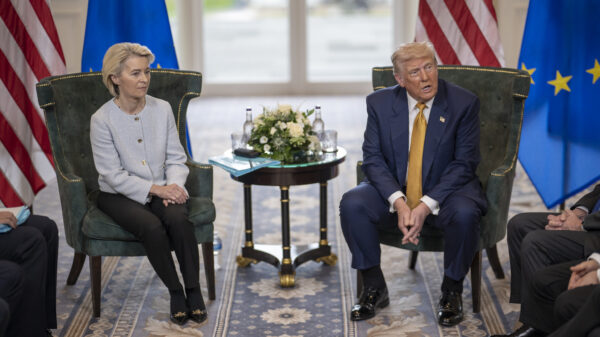Staff Writer Marko Blanusa sits down with comedian Ahir Shah following the release of his Edinburgh Festival award winning stand-up show ‘Ends‘ on Netflix.
Ahir Shah is a British-Indian stand-up comedian known for his blend of wit and philosophical inquiry. He has also featured on numerous TV shows, including ‘Have I Got News For You‘, ‘Mock the Week’, ‘Live at the Apollo’ and ‘The Mash Report‘. In this interview, he discusses his writing process, life as a student comedian and why he thinks you should go to your 9am lectures.
Roar: Hi Ahir, firstly, I just want to congratulate you on the success of your show! How has the tour been going so far?
Ahir: Thank you! I think because this all started and ramped up in a kind of unusual way – normally the way that stand-up works (or certainly worked for me) is that you work something up and you do ‘work in progress’ shows, then go up to Edinburgh with what you hope is the finished article. By this stage you have already booked in tour dates, whereas [Ends] grew out of going up to Edinburgh in that same way but I began the festival with a ‘work in progress’ show that I was sort of reading off my notes on stage. During this period the show was changing and becoming itself over the course of the subsequent week or two and then by the end of the Festival doing quite well, and it meant that we were organising things in retrospect more than we normally would. It’s sort of like how I got engaged to my now wife before we lived together, so I think [the Ends tour] is just another one of these situations of doing a relatively conventional thing in a deeply weird order.
R: One thing that strikes me very much about your comedy is the way that you blend very serious material with your jokes, and so I was wondering, when writing these shows, do you start with jokes and punchlines, or do you take a serious theme and add jokes in retrospect?
A: These things usually have to work in concert. I tend to build up anything and everything over the course of the year that live in the drafts section of my phone, and then after a while I go: “Right, what is the story that I actually want to tell?”, and in this instance I wanted to tell the story of my mum’s parents, their initial journey into this country and particularly that of my grandfather and, how that compares to me 60 years on, from when he first arrived to the UK. So there are bits that I’ve been working on that are actually related to this anyway – one of the things is how I’m now married and he was married for many, many decades it’s like well I’ve got stuff about being married already! You have parts of what goes in and then when you realise that this is the overarching story that you want to tell, you start finding the connecting tissue between the two and as you get deeper into the story you’re always going to pull out more jokes. I think that’s the at the core of it because fundamentally it’s stand-up comedy, it’s got to be built out of laughs. Hopefully people find some sort of emotional resonance with Ends as well, but if a comedian walked out on stage billed as a comedian and said “By the way for the next hour I’m going to like make you feel extremely emotionally fraught”- well that’s not what I paid for it all! I want this to be fundamentally built out of jokes.
R: In many of your previous shows you have also spoken a lot about your family – what is it that draws you to this topic?
A: In many ways it’s because these people simply will not leave me alone! [laughs] Whenever you have whatever job, whether it be a rocket scientist or brain surgeon or whatever, after a while the fact that you are a rocket scientist or brain surgeon will not be remotely interesting to you personally, because that’s just your life. People often think “Well why would I ever want to discuss my boring schedule?” even if their boring schedule involved getting people to Mars. I look at my own life and there are no elements that are surprising to me because I’m experiencing them in real time, whereas when you can look back and be like: “Okay, there are these people who I know/knew and evidently weren’t like an alien species, so we could speak and get on and yet every element of what they went through sounds so much wilder and more interesting to me than just life anecdotes of a touring comedian”. To me that’s just what I do and most of my mates do.
R: I want to pivot back to talking about some of your early days as a comedian. Don’t ask how or why, but I was told by Nish Kumar that you began doing shows so young that your dad had to accompany you to the pubs in which you were performing.
A: Yeah, he did! [laughs]
R: I’m not going to ask about that, but you were clearly performing a lot even before you came to university, so I wanted to ask about how you juggled your gradually growing stand-up career with your student life?
A: I think that on the one hand it’s a question of scale, as in, I did stand-up as a hobby, so the question was not: “How will I balance the fact that I am gigging two to three hundred times a year?” which is what you end up doing when you’re trying to build a career. So it’s not like I’m doing that whilst doing a degree. However I think what was incredibly useful is that at the time I was pretty confident [stand-up comedy] was what I would like to give a go for my life going forward. My parents are not particularly ‘traditional’ or they’re not really conservative or anything like that, but if I had told them that instead of going into higher education I was going to take a gamble at being a clown, they would have been like: “Would you like to try again with that sentence?” [laughs]. I was at Cambridge and there were so many opportunities there, you’ve got the Footlights comedy society, student theatre and loads of opportunities to fail in a supportive environment with people who are interested in the same sort of thing as you. I think that that’s valuable not just in comedy but anything that you’re just doing during your time in higher education. We didn’t always achieve what we wanted the first time we were doing it, but it was more like: “We’re all young and don’t really know much about what we’re doing but we’re really interested in learning and we’ll give it a go.” If we fail in any of the things that we’re attempting, it’s not that big a deal because we’re here to support one another.
R: You’ve kind of touched on it here, but I want to finish with a slightly cliché question. Looking back on your time as a student, what advice would you give yourself?
A: On a general level, I would say you are always suspicious of people who refer to this as the best years of your life. You always thought that that said more about their adult lives than it did about the general student experience. Do not worry about this, it will probably not be the best time (it will still be really good, I had a wonderful time), but don’t worry about peaking. There’s heaps more to come. On an academic level I would say: “You utter moron. For these three years you have an opportunity where world experts in their fields are talking about things you are interested in, and they’re doing these things called lectures that you can just go to! If anything they prefer it if you go, and you’ll never get a chance to do that again, right? So just get up!” [both laughing]
R: I think that would be a good message to end on for all of our readers! If anything, I hope you’ve at least encouraged some people to go to lectures.
A: I hope that when they’re looking at the stats for the academic year and it will be like: “What’s that sudden spike in attendance?” after the article comes out.
R: I would love it if my article got that kind of reach… [both laughing]. That’s all I wanted to ask, thank you again for your time and best of luck with your upcoming leg of the tour!

Photo Credits: Matt Crockett
Ahir Shah is touring the UK and Ireland from January to March 2025, for more information, you can visit his website. He recently finished a run of shows in London, but tells me that he’s planning to return soon. In the meantime, you can now stream his show Ends exclusively on Netflix.














